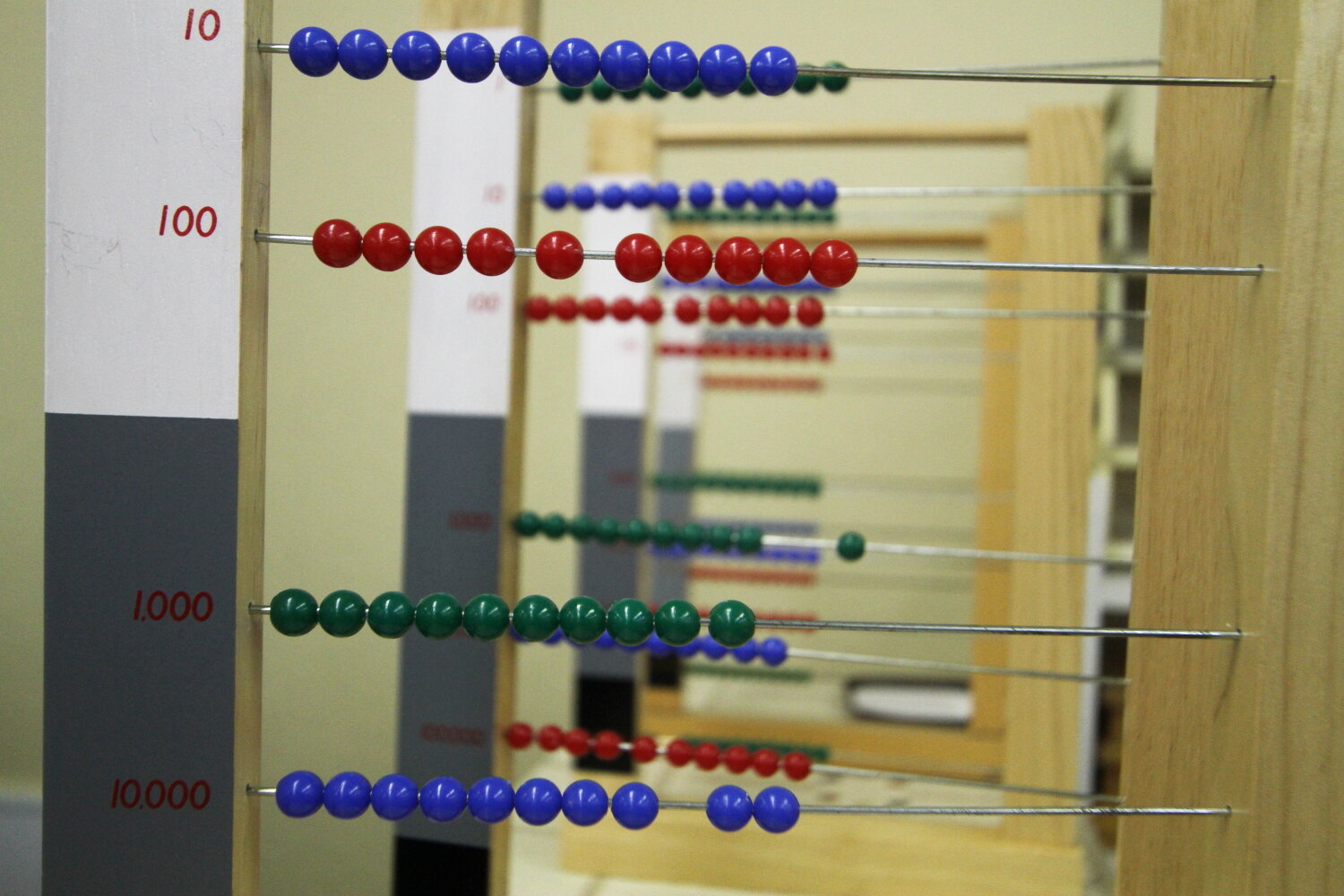Dr. Maria Montessori observed young children in Italy in the early 1900’s and developed a child-centered curriculum that is now implemented and celebrated around the world.
Dr. Montessori felt strongly that by working independently with guidance and encouragement, children would be self-motivated to embrace learning.
Montessori classrooms are child-centered environments that span three ages, typically 3-6, 6-9 and 9-12. The classroom atmosphere is calm, noncompetitive and industrious. In a family-like setting, the children develop self-confidence, social skills, responsibility, and a deep love of learning.
The Montessori curriculum is based on respect for the child. Teachers use calm voices and model what Dr. Montessori called “grace and courtesy.” Children learn not only academics, but also the practical life skills, work habits, and social awareness that prepare them to interact successfully with the world around them. At New World, children are prepared for life, not for tests.
A Montessori classroom is a carefully thought-out educational setting that allows a child to develop fully based on his or her readiness. The Montessori materials were brilliantly designed to be self-correcting and to encourage self-direction, experimentation, independent thinking, and creativity.
Children are free to move and explore, and they learn at their own rate regardless of chronological age. As they experience success, they feel both competent and confident.
In the words of Maria Montessori, “To consider the school as a place where instruction is given is one point of view. But to consider the school as a preparation for life is another. In the latter case, the school must satisfy all the needs of life.”
To learn more about the theory and methods of Montessori education, visit the Association Montessori Internationale website.
Learn more about Montessori principles.
Watch videos about Montessori education in action.


































